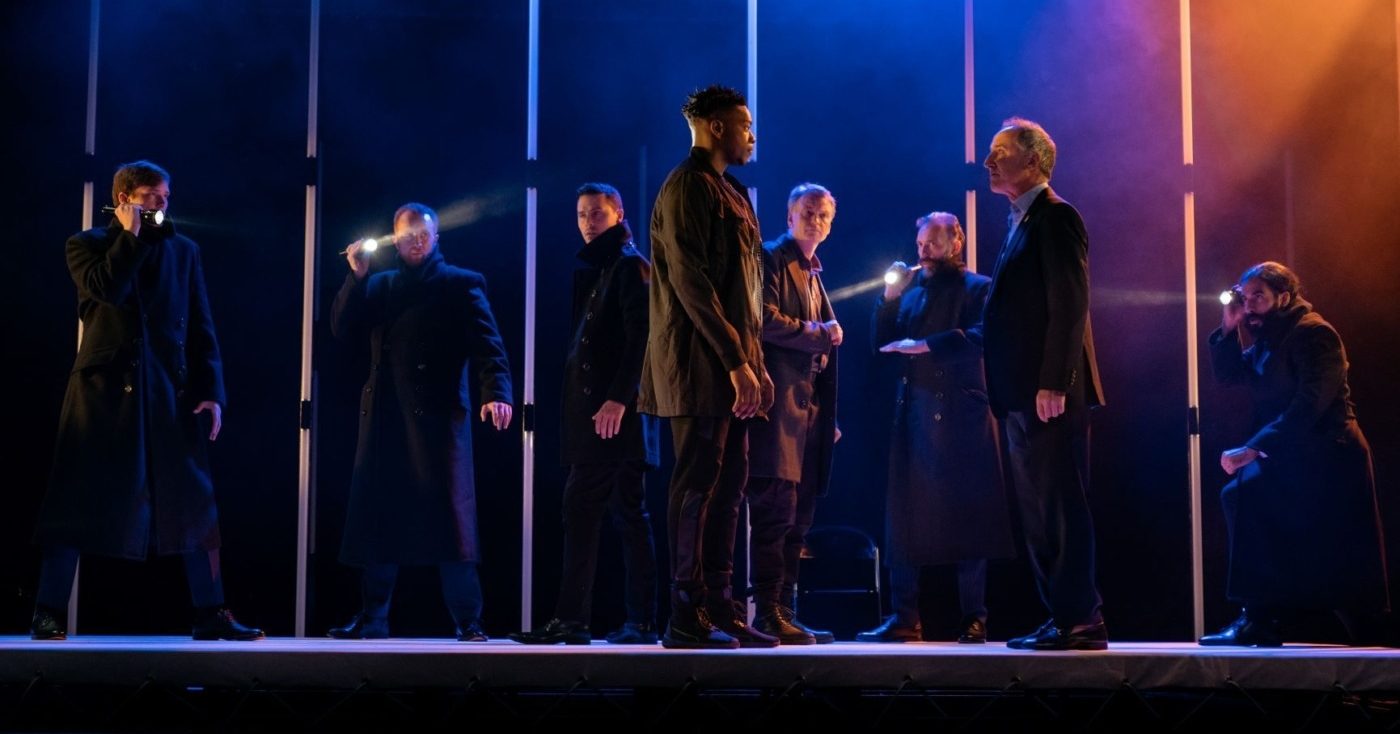“Tearing conflicts between Christianity and Islam”: a review of ‘Othello’
The tearing conflicts between Christianity and Islam that continue to pervade modern society are at the heart of the English Touring Theatre’s latest production of Othello, created in conjunction with Shakespeare at the Tobacco Factory and the Oxford Playhouse, and directed by Richard Twyman.
The stage is a cage-like enclosure, setting a grim tone for what is to come, despite the tenderness of the Muslim marriage ceremony that opens the play. While this initial sequence was absorbing enough, the rest of Act I dragged almost unbearably, and not because I was sick with suspense. To my relief, the pace picked up when punchbag-esque weights descended suddenly from the ceiling in a captivating scene depicting the destruction of the Turkish fleet in a storm, while flashing fluorescent light strips were used to great effect throughout the play to mirror Othello’s downward spiral into jealous madness.
The tearing conflicts between Christianity and Islam that continue to characterise modern society are at the heart of the English Touring Theatre’s latest production
In his professional debut role, Victor Oshin commands the stage as the Venetian general, donning an ostentatious cross around his neck as his ‘mask of assimilation’ in a society riven by religious tension. It is this cross-turned-dagger that becomes the instrument of his suicide, a fitting image for the play’s climax. Similarly, Twyman’s use of a Muslim prayer mat instead of a bed, the pivotal object in the final scenes of the play, was a nice touch. Nevertheless, it takes some time to infer that Othello is hiding his true Muslim faith and that Desdemona is the only one who knows his conversion to Christianity is false. The random admixture of the two supposedly clashing cultures was realised through Roderigo’s unexplained costume in Act IV, and through a completely absurd party scene in Act II which features a wholehearted celebration from all the Christian soldiers, of traditional music sung in Arabic. Said party scene verges on farcical, a seemingly random insertion into the play with its incongruously lewd dance moves and bawdy humour, perhaps a desperate attempt to invigorate the play as the energy flagged once more.
Victor Oshin commands the stage as the Venetian general
Unfortunately, for the most part, the acting is largely uncompelling. The dynamic between Othello and Iago is one of the most magnetic in Shakespeare’s canon, and while the scenes of rage as we approached the end were played out with a sincere energy, Oshin’s Othello and Paul McEwan’s Iago took a while to get into their stride. Chris Bianci is insipid and expressionless as Brabantio, and Kitty Archer brings an interesting energy to the role of Desdemona. It’s admittedly a difficult role to play considering her onstage silence during the early scenes, but the complete character shift from docile, doll-like spirit to confident and flirtatious newlywed was nevertheless jarring. The star of the show is undoubtedly Kelly Price, who shines as Emilia, skilfully alternating light and humorous touches with devastating tragedy as she realises the role she has played in her mistress’ death.
Despite a slow start, the second half saw great improvement as the pace inevitably ramped up. Sound and music were utilised beautifully, particularly in the final gentle scene that Emilia and Desdemona share; ‘The Willow Song’ that appears in Shakespeare’s original is here translated to classical Arabic and, though still mournful, becomes a song of “celebration and fire and heart”, as Price puts it. It’s a shame this energy wasn’t carried through the execution of the play as a whole.
Othello is at the Warwick Arts Centre until November 10th. You can buy tickets here.

Comments
Comments are closed here.